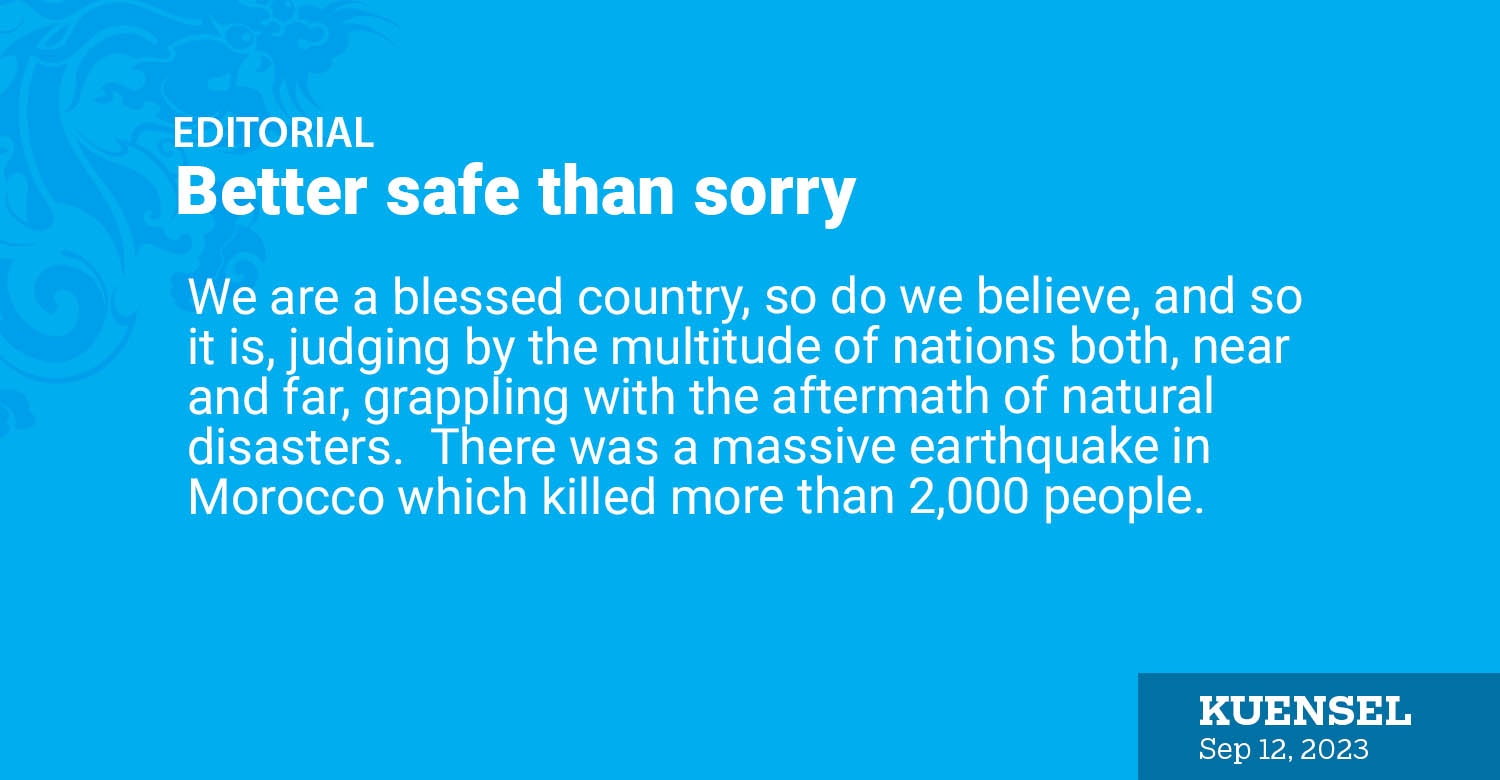We are a blessed country, so do we believe, and so it is, judging by the multitude of nations both, near and far, grappling with the aftermath of natural disasters. There was a massive earthquake in Morocco which killed more than 2,000 people. China and Hongkong are battling widespread floods. Elsewhere, storms and wildfires are wreaking havoc claiming lives or damaging property. It is indeed a year marked by a series of calamities.
So far, we have been fortunate. We had been spared from floods, landslides, drought or famine. Our only grievances revolve around the occasional shortage of drinking water during dry months and clogged drains during the wet season. But we must not be complacent. The United Nations had warned the world, as early as July this year, to prepare for the effects of El Nino. El Nino, the severe weather phenomenon that triggers higher global temperatures is set to persist throughout 2023 and in 2024.
Scientists say that the effect of El Nino will be worse in 2024. We are already feeling the heat. The past few days have been so hot and dry that farmers in rice-growing regions are worried about their crops. There is water to keep the paddy wet, but they know rain helps paddy to thrive, especially around this time of the year. That the likelihood of El Nino developing towards the end of 2023 appears to be becoming a reality.
El Nino is a phenomenon where large-scale surface temperatures in the central and eastern equatorial Pacific Ocean increase leading to increased rainfall in parts of southern South America, the southern United States, the Horn of Africa and central Asia. On the other side, it can trigger severe droughts. Unfortunately, we are on the side of drought, which could pose a significant problem next year.
Agriculture is often the hardest hit sector during El Nino events. In our case, there is even more cause for concern because we do not produce enough food to sustain our population. An El Nino-induced drought in our region would mean a shortage of food or price escalations.
It is a good time to remind ourselves and prepare. 2024 will be a busy year with the country set to elect a new government, ready the 13th Plan, and seek funding, among other tasks. The UN warning is a signal for governments to mobilise preparations to limit impacts on our health, ecosystems and economies. Are we prepared? Are we even concerned about the warnings even when we are literally feeling the heat?
For import-dependent countries like us, food security should be of paramount concern. What if El Nino weakens the monsoon that neighbouring India is dependent on and impacts its rice production. Situated in a fragile ecosystem, we are vulnerable to climate change. A heatwave or poor monsoon can have devastating effects on our agriculture and livestock sector.
While urbanites enjoy the clear autumn blue skies, farmers are already fretting over the lack of rain this month. It is believed that after Thruebab (blessed rainy day) heralds the end of the monsoon. What we have seen in the last few years is freak weather patterns surprising us and challenging age-old beliefs. Heavy rain during the harvest season could damage the fruits of year-round hard work. We have witnessed this before, and it could happen again.
As we wait for the crops to ripen, it is also time to think and prepare for the year ahead. It is, like we say, better safe than sorry.


